Sinclair Method Studies
This article examines the scientific foundation behind TSM, drawing on nearly three decades of peer‑reviewed trials, neuroimaging research, and systematic reviews.
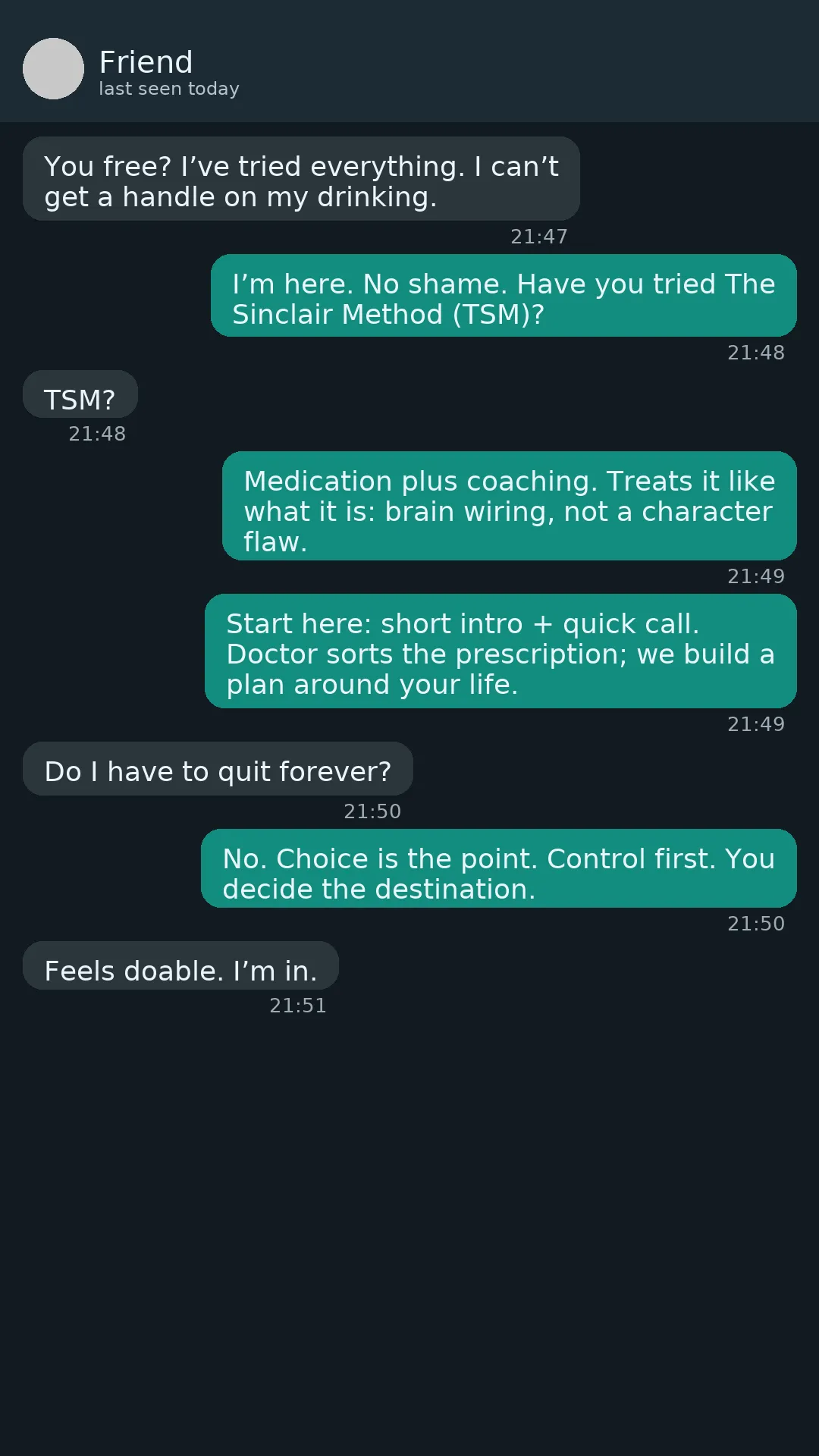
A look into what The Sinclair Method is, and how it can help you finally get a handle on your drinking.
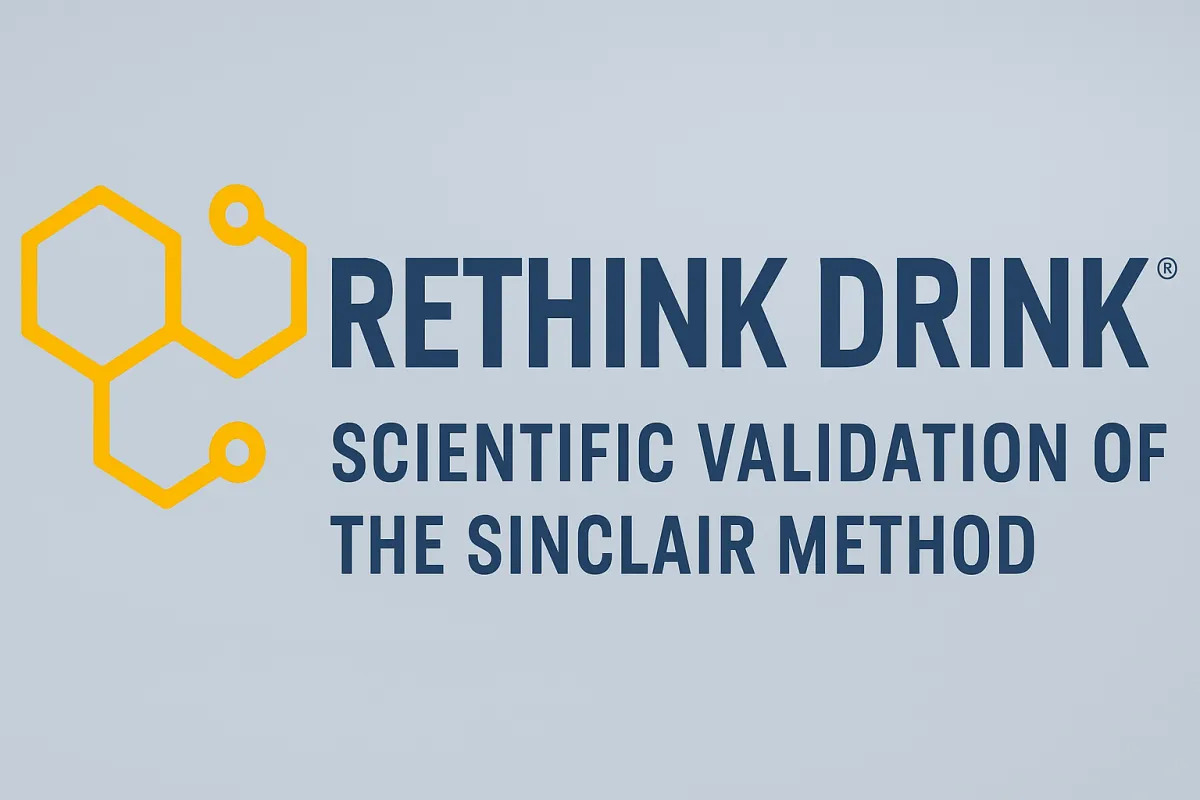
This article examines the scientific foundation behind TSM, drawing on nearly three decades of peer‑reviewed trials, neuroimaging research, and systematic reviews.
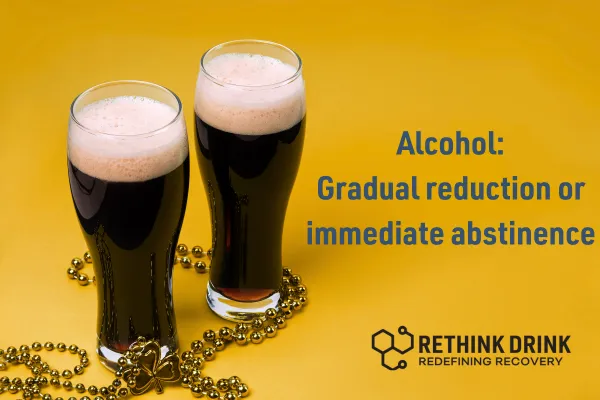
When it comes to changing our relationship with alcohol, many of us are told there's only one way: stop drinking completely, right now. But what if that approach is too harsh—too unforgiving—for where we're at emotionally, psychologically, or even physically?
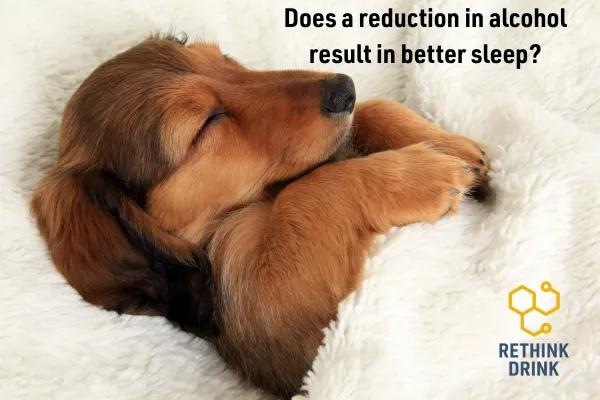
Sleep and alcohol have long had a complicated relationship. For many, a nightcap might feel like a shortcut to falling asleep—but is that truly restful sleep? At Rethink Drink, we often see a turning point for clients who reduce their alcohol intake and, sometimes to their surprise, begin to sleep better than they have in years. Let’s unpack the science behind why alcohol reduction often leads to improved sleep quality and how you can make sustainable changes for long-term wellness.
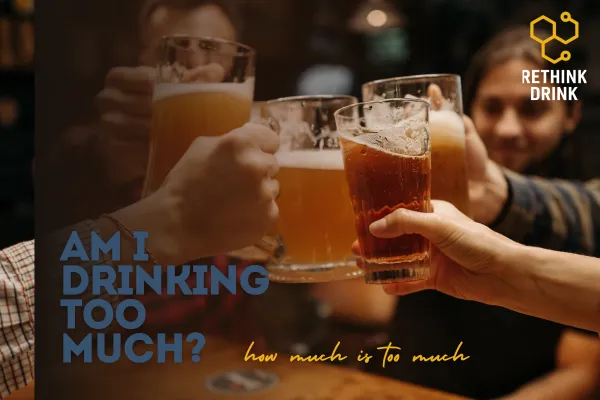
It’s a common concern: Am I drinking too much? And with good reason. While 14 units per week is the current UK guideline for low-risk drinking, what really matters is how alcohol fits into your lifestyle and mental health.
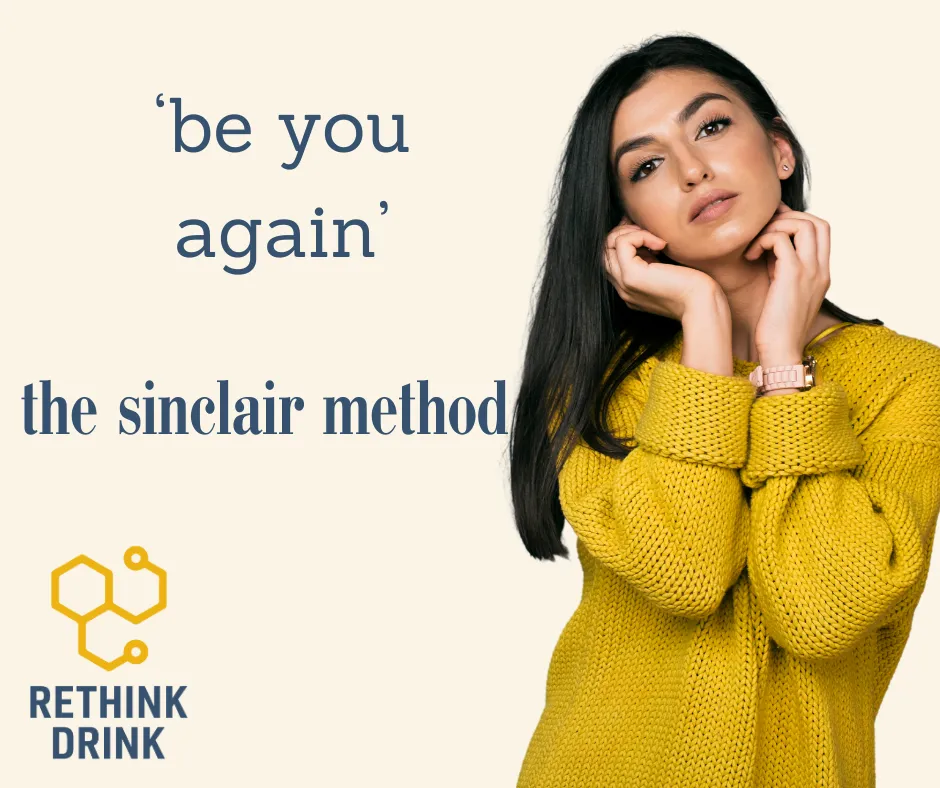
When alcohol begins to reshape who you are, it’s normal to wonder, “Where did I go?” That’s why at Rethink Drink, we’re passionate about helping you be you again—without guilt, shame, or impossible expectations. The Sinclair Method (TSM) offers a science-led path to overcoming alcohol use disorder (AUD) that’s built on trust, not cold turkey. Let’s dive into how it works and why it’s helping thousands reclaim their lives—quietly, powerfully, and with dignity.
The Sunday Reset
Every Sunday, we share a 2-minute insight into the logic of the Sinclair Method.
Join thousands of others for our weekly newsletter and change how you see the problem,
because when you change the way you look at things, the things you look at change.
… There’s a reason we’re called Rethink Drink!
